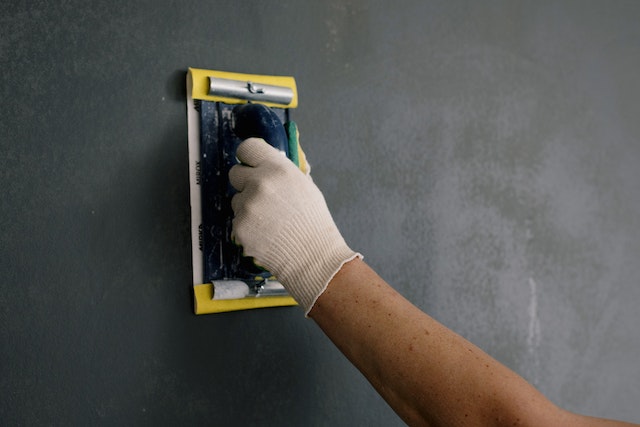Are you a landlord in New Jersey and charge your tenants a security deposit? If you do, then you have an obligation as a landlord to comply with NJ security deposit law (NJ Rev Stat § 46:8-19).
The laws primarily regulate the collection, handling, and return of a tenant’s security deposit.
The following is everything you need to know about the New Jersey security deposit law.
What is a security deposit and what purpose does it serve?
A security deposit is a payment that landlords normally require at the start of a tenancy. The funds provide the landlord with a financial cushion to cover unforeseen circumstances. Such as when a tenant fails to pay the rent due or when a tenant causes property damage.
What is the limit to how much security deposit landlords in New Jersey can charge their tenants?
As a landlord in New Jersey, you cannot charge your tenant a deposit that exceeds the rent of one and a half months. Suppose, for instance, that you rent out your property for $1,200 a month. This means that the most you can ask as a security deposit shouldn’t exceed $1,800.

You are also allowed to raise the deposit if you increase the rent. That said, you’re only limited to raising the security deposit amount to only 10 percent in a year.
Can a landlord in New Jersey charge a pet deposit**?**
Yes, you can! You can require tenants with pets to pay an extra security deposit to help cater for any potential damage their furry friends may cause to your unit.
The only exception is for people who are disabled and use a service dog. The Fair Housing Act requires that landlords allow them full and equal access to housing. After all, a service animal isn’t a pet. It’s a working animal.
In addition to that, you may also need to heed your disabled tenant’s request to do the following.
-
Add grab bars in the bathroom.
-
Install a ramp into the building.
-
Lower the entry threshold of a unit.
-
Widen the doorway to facilitate easy ingress and egress of a wheelchair.
How must a landlord store their tenant’s security deposits in NJ?
You have two options in this regard. The first option is to store your tenant’s security deposit in a money market fund. The investment company must be located in New Jersey and be registered under the Investment Company Act of 1940.
The other option is to store the deposit in an interest-bearing bank account. If you own fewer than 10 units, you must place the money in an interest-bearing account. You won’t have to abide by any interest rate requirement.

If you own 10 or more units, you must place the deposit in a bank account that pays interest at a rate equal to or greater than that paid on the bank’s money market accounts.
You must pay your tenant any interest that is generated annually from their security deposit. At your tenant’s request, you can credit this amount toward their next rent payment.
If you fail to store your tenant’s deposit in any of the two ways aforementioned, you may be liable to certain penalties. Including having to return the entire deposit to your tenant plus paying them an additional 7 percent interest.
Does NJ Security Deposit Law require landlords to provide their tenants with a security deposit receipt?
Yes, you must provide your tenant with a written receipt of your tenant’s deposit within 30 days. In the notice, you must include the following details.
-
The financial institution holding your tenant’s security deposit.
-
The type of account you’re storing the deposit in.
-
The annual interest rate.
-
The amount of security deposit received.
What deductions can a landlord make to an NJ security deposit?
According to NJ law on security deposit deductions, landlords can charge for:
-
Unpaid rent
-
Unpaid utility charges
-
Costs of fixing illegal property alterations
-
Costs of professional cleaning services where a tenant has left the unit in an excessive state of uncleanliness
-
Costs of repairing damage that exceeds normal wear and tear

Normal wear and tear refers to damage that occurs as the property naturally ages. They are minor issues that include things like faded paint or lightly scratched windows. You must not charge your tenant the cost of fixing such damage.
Damage exceeding normal wear and tear, on the other hand, occurs as a result of negligence, carelessness, or misuse of the rental premises by the tenant. Examples of such kind of damage include holes in the wall, broken tiles, pet damage, and broken windows.
When does a landlord need to return their tenant’s security deposit?
You must return your tenant’s security deposit within 30 days after lease termination. There are some exceptions to this rule, however. The first exception is if you ended the lease due to domestic violence. In such a case, you must return the deposit within 15 days.
The other exception is if the lease ended due to a fire, flood, evacuation, or condemnation of the property. In such a case, you’ll have 5 days to return the deposit back to the tenant.
Where you’re making deductions, you must provide your tenant with an itemized list. You’ll then need to send the tenant the list alongside the remaining portion to the tenant’s last known address within the same timeframe.
If you withhold a tenant’s deposit wrongfully you may be liable to pay them up to twice the amount you’re withholding.
Bottom Line
As a landlord, it is crucial that you fully understand all of the New Jersey landlord-tenant laws including the legal eviction process and early lease termination policies. Not only do they ensure that you are protecting yourself from unexpected costs but they also avoid any legal trouble with your tenants.
Still have a question regarding New Jersey security deposit law? Abacus Avenue Property Management can help. We’re a quality property management company in Jersey City. Get in touch to learn more!
Disclaimer: This blog isn’t intended to be a substitute for professional legal advice. Laws change and this information may become obsolete at the time you read it. For further help, please get in touch with a qualified attorney or an experienced property management company.